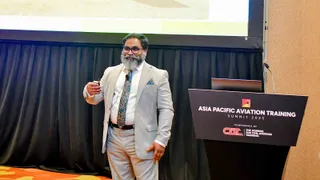ACGME Competitive Funding Opportunity for Medical Residents
Contact Our Team
For more information about how Halldale can add value to your marketing and promotional campaigns or to discuss event exhibitor and sponsorship opportunities, contact our team to find out more
The Americas -
holly.foster@halldale.com
Rest of World -
jeremy@halldale.com
The Accreditation Council for Graduate Medical Education (ACGME) launched an initiative to help medical residents and fellows to generate strategies that will let them spend more time with patients, improving their own and their patients' well-being.
The Back to Bedside initiative is a competitive funding opportunity created by residents for residents, to inspire new ways to foster greater meaning in their daily work. The ACGME will fund up to five awards of $10,000 per year, for up to a two-year period.
"The goal is to generate actionable recommendations for improving the clinical learning environment to combat resident burnout," said Dink Jardine, MD, chair of the ACGME Council of Review Committee Residents (CRCR) and resident member of the ACGME Board of Directors. "We want to build a toolbox of processes, curricula, projects and other initiatives focused on patients and disseminate them across the graduate medical education community."
"This competition recognizes that residents are uniquely equipped to identify areas for improvement," said Julian Willoughby, MD, MPH, a member of the CRCR, and resident member of the Review Committee for Physical Medicine and Rehabilitation. "We call it Back to Bedside because that is where we want residents to spend more time. We believe strengthening the bond with patients and helping residents find increased meaning in their daily work will improve patient outcomes and resident well-being."
The patient-physician relationship largely takes shape around encounters -- at the inpatient bedside, in an exam room, at an outpatient clinic, in the Emergency Room, or any number of other clinical settings referred to as "at bedside."
Graduate medical education increasingly has drifted away from the bedside, reflecting larger trends facing physicians. Research shows physicians increasingly feel a loss of meaning and control, for a number of reasons. They see more patients that are more complex. Many feel the personal pressure of appearing infallible to patients, and there is stigma attached to seeking help. They also face growing administrative burdens, electronic health record requirements, financial or production pressures, and ingrained inefficiencies. The result is less time to develop long-term relationships with patients and other professionals. These factors may lead to burnout and even depression if not addressed.
"When physicians are healthy, they are more likely to deliver the best possible care," said Timothy Brigham, MDiv, PhD, chief of staff and senior vice president, Education at the ACGME, and co-chair of the ACGME Physician Well-Being Task Force. "Research is showing us causes and levels of burnout in residents. This has led us to look at physician well-being, including residents, in a different way. We believe we are the right leaders for advancing the issue, but realize we can't do it alone."
The CRCR, a group of approximately 30 resident and fellow members of the ACGME Review Committees who advise the ACGME about graduate medical education, developed Back to Bedside. The solicitation calls for projects that will improve the clinical learning environment and promote behaviors that advance residents' and patients' well-being, such as:
- Creating opportunities for more engagement in meaningful patient care
- Developing a shared sense of teamwork and respect among colleagues
- Decreasing time spent on non-clinical, administrative responsibilities
- Fostering a supportive, collegial environment
- Increasing patient satisfaction through more time with the care delivery team
Proposals are due August 5, 2017. The ACGME will announce the winners in early October 2017. More information is available at www.acgme.org/backtobedside.
Back to Bedside is part of a larger ACGME commitment to tackle the issue of physician well-being with collaborative strategies. The recently revised Section VI of the ACGME's Common Program Requirements for graduate medical education programs includes a dedicated section addressing the critical importance of physician well-being. The Clinical Learning Environment Review Program, which visits and provides ACGME-accredited Sponsoring Institutions with periodic feedback, heightened the priority given to resident well-being in a new Pathways document released in May. The ACGME will convene its Third Annual Symposium on Physician Well-Being this fall, gathering national stakeholders in and outside the medical community dedicated to raising awareness and finding solutions to combat burnout.


